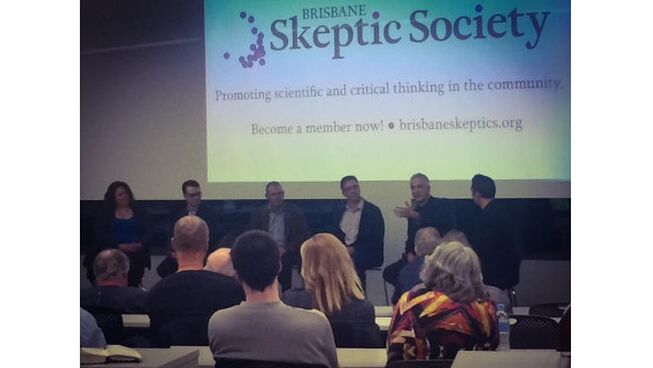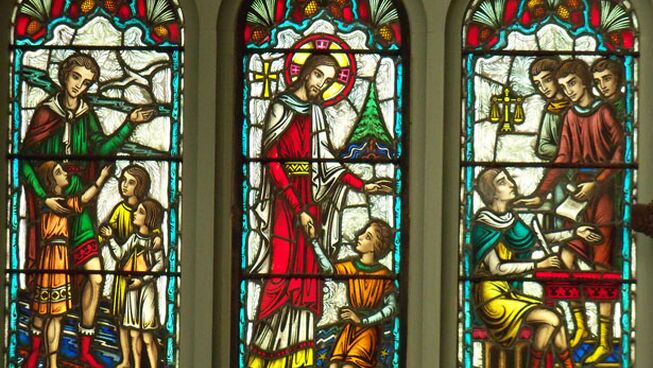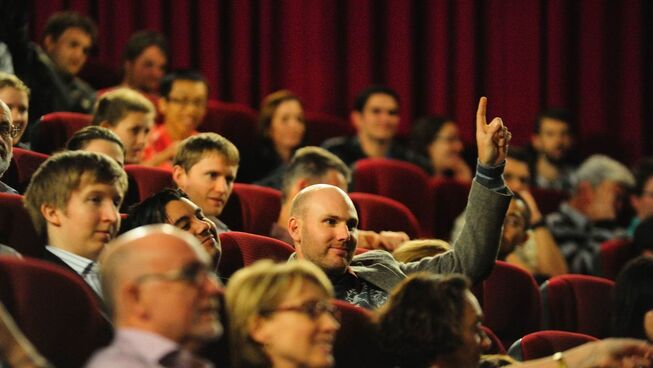Can history be theology? An invitation to Peter Boghossian

It is very easy to make assertions. On 2/7/15, at the How do you know? event organised by the Brisbane Skeptic Society and the Rationalist Society with a little help from the City Bible Forum, we got a whopper. The key guest speaker, the professor of philosophy, Dr Peter Boghossian, made a startling and stark assertion. His assertion was about the impossible dynamic between history and theology.
Given the night was called How do you know? I really wanted to ask Peter,
"So, how do you know what you asserted?"
But unfortunately, on the night there was no opportunity to ask this question. So, I’d like to present an opportunity on this blog.
First let me give you some context for the assertion. The panel was hosted by the Brisbane Skeptic Society and ably moderated by Jake Farr-Wharton. On the panel were Dr Peter Boghossian, Dr Maggie Hardy from the University of Queensland, Barrister Stewart Webster, Dr Garth Thomas, and myself, not a doctor. The aim of the night was to explore the limits and basis of human knowledge and how it is that we make decisions.
During the panel, I was asked the question,
"Are claims to knowledge (such as “my god is real”) that can be reduced to statements of religious faith, a valid epistemological conclusion?"
I’m not sure what was expected as an answer. But I answered, "No!"
Not because I think that Christianity is a made up fairy tale. But, because hidden in the question is a definition issue. The way religious faith is understood here is as belief without evidence. [1] Thus, I was being asked,
"If someone makes a claim to religious knowledge, like ‘my god is real’ without any evidence (ie. just asserts it) is that a valid epistemological conclusion?"
And the answer is, "Of course not!" (From the perspective of Christianity for I would be unwise to answer for every belief system out there.)
Rather, I proposed that, "Christianity was not a religious faith" (if by faith you mean belief without evidence.)
Rather, Christianity relies on the historical data as evidence for Jesus and so the faith (or trust) of Christianity is in the historical person of Jesus. The historical data includes the historical accounts of Jesus’ life. (This is not the only evidence I would propose but in the context that is all that I put forward.)
In response, Peter made his assertion, which was even if we acknowledge historical evidence,
"History can not be Theology."
This seems to me to be a whopper of an assertion. And it was an assertion, for he didn’t try to support this by any argument, he just stated it as fact. To draw that out, Peter was asserting that historical information, even if correct does not give you the true knowledge about God. [2]
My question to Peter is,
"How do you know this?"
Again, I invite him to support his assertion with an argument on this blog.
Just to take this a step further, and to give Peter something to respond to, here is a proposal for why history can be theology. I will lay out my position with some assumptions. I'm not saying this proves Christianity. My goal is much more modest: to argue that historical information can give you theological information. So here goes:
1. Let us assume for the moment that there is a Spiritual being (ie. God) who made the world. Let’s call him God to make things easy.
2. Then God decided to become part of the human race (again, let me frame this as an assumption for argument’s sake).
3. Say then, God appeared at a particular time, in a particular place and was involved in particular events. This would mean that God was part of history for history is by definition made up of events that happened at a particular time, at a particular place.
4. As such, God would be part of history.
5. Now, anyone who lived at that particular time and in that particular place who had seen God act or speak would therefore have knowledge of God. Perhaps not complete knowledge but if they saw clearly and heard clearly they would have real knowledge of God, would they not? In other words, they would have theology.
6. Does this not mean that history has become theology? Historical information, information discovered in a particular time and place such as God speaking and acting, would now be theological information.
But let's take this a step further:
7. Let us imagine that they wrote down records of what they saw and heard. (And let us assume that they wrote an accurate account or accounts of what they saw and heard.)
8. Then if we were to have those historical records then we also would have access to that same theological knowledge. Fleshing this out (pun intended) as we read their accounts of historical events in a particular time and place we would be reading accounts of how God spoke and acted.
It seems to me that History could indeed be Theology.
Now Peter, and others, might baulk at some of these assumptions. You may think that what is recorded in the historical accounts is not accurate (in which case we have unreliable theology). But this is a separate issue that we can explore and see if the historical records stand up.
You might doubt that a spiritual being can become a part of the human race, or that such a being exists. Again, this is a separate issue because it goes to questions of proving God’s existence, rather than can history be theology.
Related to this, if we say that history cannot be theology because God does not exist, then what we’ve done is ruled out an answer with a presupposition.
Let’s have this discussion rather than an ungrounded assertion that history can not be theology. For I think that history can indeed be theology and I think I’ve given good reasons above.
But it isn’t just me, in the eyewitness account of John (in the Bible), he argues that history is indeed theology.
"The Word became flesh and made his dwelling among us. We have seen his glory, the glory of the One and Only, who came from the Father, full of grace and truth."
(John chapter 1 verse 14)
So, Peter... can History be Theology? If not, why not?
___________________________________________
[1] If one claims knowledge either in the absence of evidence, or when a claim is contradicted by evidence, then this is when the word “faith” is used. “Believing something anyway” is an accurate definition of the term “faith.” faith /fTH/ 2. Pretending to know things you don’t know.
Boghossian, Peter (2013-11-01) A Manual for Creating Atheists (pp. 9-10). Pitchstone Publishing. Kindle Edition.
[2] Theology is simply the knowledge or or about God. Theos is the Greek word for God. And Logos is the Greek word of knowledge or information. Just like biology is knowledge about living things (bios means life in Greek).
Image courtesy: Brisbane Skeptic Society



